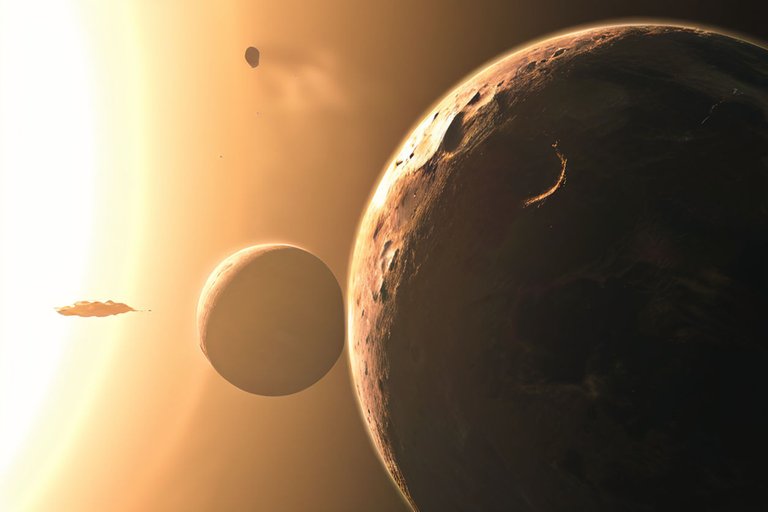Apophis can change his route.
Apophis can change his route.

Apophis will approach Earth on Friday, April 13, 2029, at about 38,000 km at its closest approach, but all asteroids move around the sun and impact or are altered by other planets, moons and even other asteroids, that is a cosmic dance with hundreds of thousands of objects where any of them can collide or gravitationally push another and this means that an asteroid can change its trajectory, going from a safe and peaceful trajectory around the sun to another that places it on a collision with the earth.

Apophis with its 350 meters is not a destroyer of planets as the media also say, nor would its impact mean a mass extinction, nor the end of humanity, although it certainly has a very respectable and disturbing size, it has a large enough size enough to devastate a large city such as New York, Los Angeles, Mexico, Buenos Aires or Madrid, it would have a devastating effect on tens of thousands of square kilometers and if it fell into the sea, which statistically would be the most likely, it would cause a tsunami, although not larger. than those we have suffered in the past, for example in Indonesia in 2004, which is not a consolation either because it is a terrible catastrophe.
That Friday, April 13, 2029, when Apophis will pass only about 38,000 km from the Earth's surface, this is the forecast we have, but it is a forecast that could change, it could change according to a new study published on August 26 in a scientific journal, by astronomer Paul Wiegert, an expert in solar system dynamics and who works at Wester University in Canada.
The images without reference were created with AI
Thank you for visiting my blog. If you like posts about #science, #planet, #politics, #rights #crypto, #traveling and discovering secrets and beauties of the #universe, feel free to Follow me as these are the topics I write about the most. Have a wonderful day and stay on this great platform :) :)
0
0
0.000
Interesting I was reading about this asteroid but You can only see it using a telescope!
That's how it is! and a good telescope
Thanks for your contribution to the STEMsocial community. Feel free to join us on discord to get to know the rest of us!
Please consider delegating to the @stemsocial account (85% of the curation rewards are returned).
You may also include @stemsocial as a beneficiary of the rewards of this post to get a stronger support.